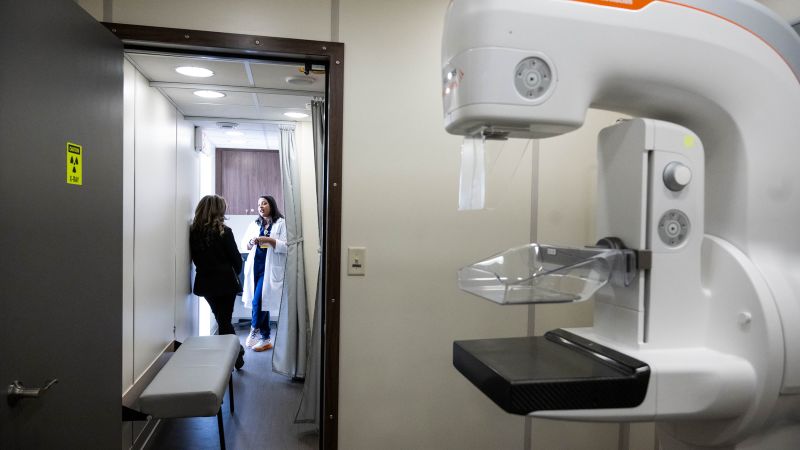
Task force updates guidance for breast cancer screenings for women 40 and older
CNN
Women are now advised to get a mammogram every other year starting at age 40 and until age 74, according to new recommendations from the US Preventive Services Task Force.
Women are now advised to get a mammogram every other year starting at age 40 and until age 74, according to new recommendations from the US Preventive Services Task Force. The USPSTF, a volunteer panel of independent medical experts whose recommendations help guide doctors’ decisions and influence insurance plans, previously recommended that biennial mammograms start by age 50 and the decision for women to screen in their 40s “should be an individual one.” These new recommendations, published Tuesday in the medical journal JAMA, replace the task force’s 2016 recommendations. Some groups, such as the American Cancer Society, have already recommended for women to start mammograms in their 40s. The updated USPSTF recommendations apply to everyone assigned female at birth, including cisgender women, transgender men and nonbinary people at average risk of breast cancer, as well as those with a family history of breast cancer or dense breasts. The updated recommendations do not apply to people with a personal history of breast cancer, a genetic marker or syndrome that may put them at a high risk of breast cancer, such as the BRCA1 or BRCA2 genes, or those with a history of high-dose radiation therapy to the chest or a history of a high-risk breast lesions. These patients should either stay on the plan outlined by their physician or talk to their doctor about what’s best for them. “We make this new updated recommendation because the latest science clearly shows that starting at age 40 and obtaining a mammogram every other year until age 74 can further reduce deaths in breast cancer,” said USPSTF Chair Dr. Wanda Nicholson, a senior associate dean and professor at George Washington University’s Milken Institute School of Public Health.

The US Centers for Disease Control and Prevention has been tracking abortion trends for decades, but this year’s report — including some of the earliest federal data reflecting the effect of significant changes to abortion access nationwide – has been pushed back until spring amid turmoil at the federal agency.












